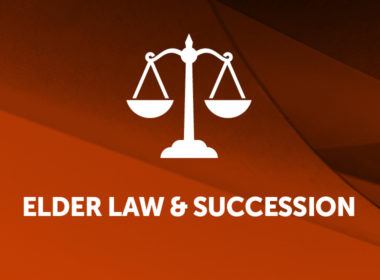Key decisions
- Dowdy v Clemson [2021] NSWSC 1273
- Commissioner of Taxation v Bosanac [2021] FCAFC 158
- Re Burstyner; Application by Burstyner [2021] VSC 531
- Case 699921 (concerning QSuper Board)
- Re Estate Acquaro, Deceased [2021] NSWSC 1156
- Estate of Marcia Ann Dolan [2021] NSWSC 1197
- Genesian Theatre Company Inc v State of New South Wales [2021] NSWSC 1089
- Martin v Matthews [2021] NSWSC 1040
- Wertheim v Perpetual Trustee Company Ltd [2021] NSWSC 1229
Financial manager liable for acting without authority and contrary to fiduciary duty
In 2012 Jenny Dowdy was appointed financial manager for her brother’s managed estate. Over a 12-month period between 2015 and 2016, Dowdy withdrew funds from her brother’s bank account totalling $277,085. There were 19 cheques drawn in her favour. They were all for substantial round sums ranging from $1,000 to $44,000. Action was brought for an accounting.
Dowdy said that she acted on her brother’s directions. The Court in Dowdy v Clemson [2021] NSWSC 1273 (Lindsay J) stated that, by virtue of s 71(1) of the NSW Trustee and Guardian Act 2009, ‘[the] power of a managed person to deal with his or her estate is suspended in respect of so much of that estate as is subject to management under’ the Act. Accordingly, the brother had no power to give directions to Dowdy as his financial manager. Moreover, she had no entitlement, in that office, to act at his direction (at [37]). ‘A [financial] manager cannot be absolved from liability by deflecting responsibility unto a person in need of protection. In cases of doubt about how to proceed, a manager can apply for directions, in the first instance to the NSW Trustee and, if need be, to the Court’ (at [45]). The Court noted that Dowdy was entitled, and obliged (by reason of s 39(d) of the Act), to consult the protected person in the application of his funds. ‘She was not entitled, however, merely to act at his direction. Her failure to exercise any independent judgement about management of his funds was a failure to act in his interests, and for his benefit, in circumstances in which he lacked capacity to manage his own affairs’ (at [46]).
The Court declined to excuse Dowdy’s wrongdoing. It stated that ‘[i]n her disbursement of his funds to purchase things of use to her, as well as [her brother]… she acted in her own interests, and for her own benefit, rather than, as she maintains, simply in the interests and for the benefit of the plaintiff. She did not meet the standard of propriety required of the fiduciary which, as the plaintiff’s financial manager, she was. Even if, according to her own lights, she acted honestly, she did not meet the standard of reasonableness necessary for a finding that, in fairness, she should be excused, in whole or part, from liability for her breaches of duty’ (at [56]). Judgment was entered for $346,172, which included interest.


